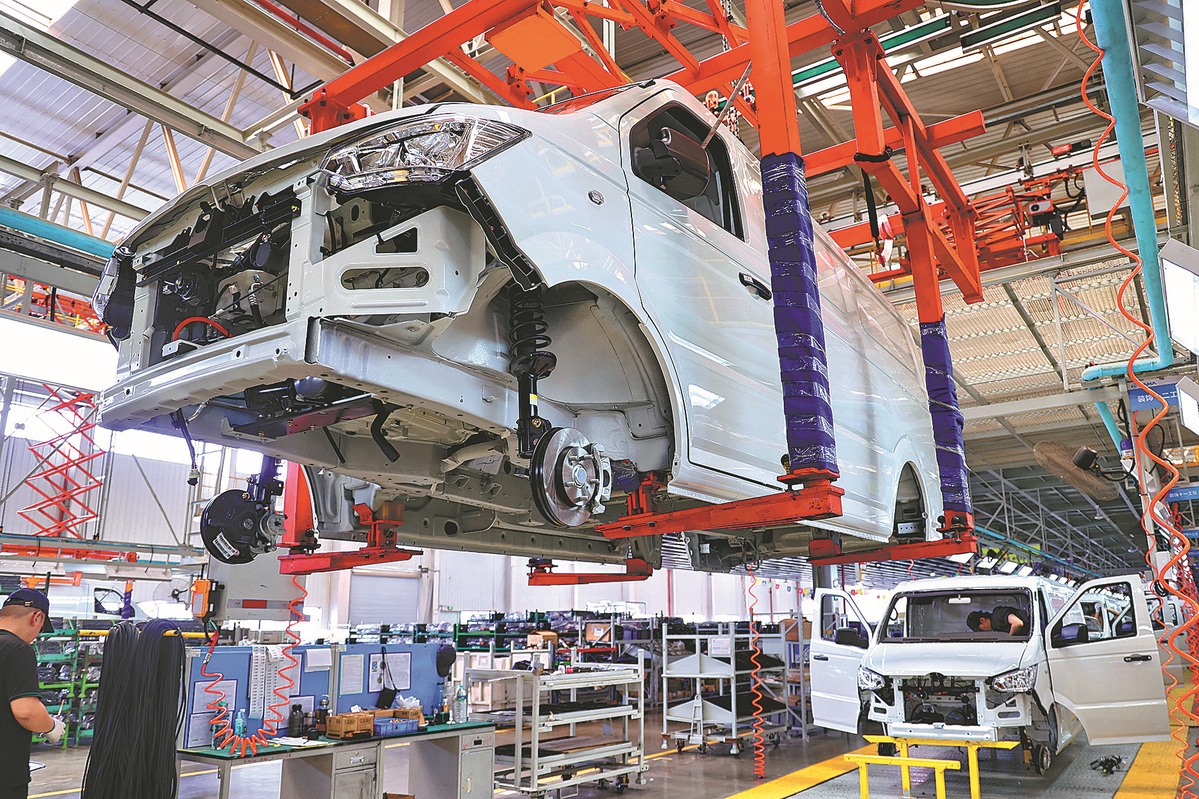New energy vehicles export drive accelerates


Confidence boost
Lang Xuehong, deputy secretary-general of the China Auto Dealers Association, said Chinese auto companies have eight to 10 years to make their mark in the world.
"If they cannot do so during this time, there will only be a slim chance of them making the list of the top 10 carmakers," Lang said.
Zhao, from SAIC, said the past achievements of Chinese carmakers in global markets have motivated and increased the confidence of experienced players in the industry, including himself.
However, he quickly added that there is still a long way to go to reach the level of well-established international giants.
Zhao said that when SAIC planned the MG4 Electric, the aim was to make it as popular as Volkswagen's Golf, which he termed "a truly international model".
"Chinese manufacturers should offer their international customers great products and enable their local dealers to make money while making some themselves," Zhao said.
In addition to simply selling vehicles, some carmakers have started to launch factories in promising markets that are starting to go electric.
Last month, a groundbreaking ceremony was held in Thailand for BYD's first overseas NEV plant. Since arriving in the country in August, the company has sold more than 12,000 electric vehicles.
Although this figure is not high when compared with that in China, Thailand has set a goal for EVs to account for 30 percent of local vehicle production by 2030.
Located in the coastal province of Rayong, the plant is scheduled to start production next year, with an annual capacity of 150,000 NEVs. It will serve as a hub for BYD's EV production and sales in Thailand and neighboring member countries of the Association of Southeast Asian Nations.
Wang Liping, minister-counsellor for economic and commercial affairs at the Chinese embassy in Thailand, told Xinhua News Agency, "This move will not only create more job opportunities and drive economic development in Thailand, but will also promote the deep integration of the new energy vehicle industries in China and Thailand."
Construction also began last month on Hozon's plant in Thailand, which has a designated annual production capacity of 20,000 vehicles and is due to start operating early next year.
BYD and Hozon are joining the ranks of SAIC Motor and Great Wall Motors, which already have manufacturing operations in Thailand, a market long dominated by Japanese brands.
Zhu Qingyi, an assistant research fellow at the Center for International Knowledge on Development, said the EV market in ASEAN countries is poised for significant growth, as local governments are strengthening policy support for the sector. She said ASEAN members such as Malaysia, Singapore and Thailand have set phased targets for EVs and supporting infrastructure.
"Chinese carmakers, charging pile manufacturers, and engineering and power companies should seize this investment opportunity," Zhu said.
Data from the center show the EV market in ASEAN countries was valued at around $500 million in 2021 and is expected to reach about $2.6 billion by 2027.
By 2035, sales of EVs in the region are expected to surpass those of gasoline cars.























